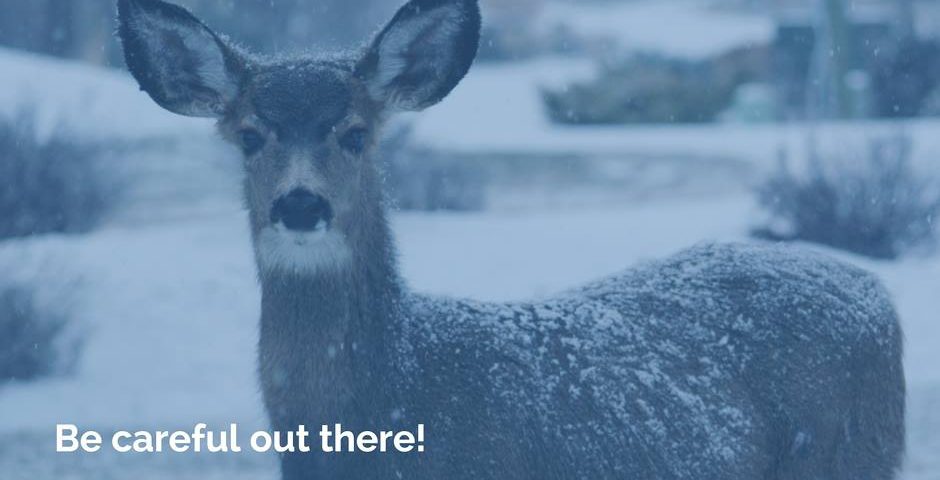It’s no secret that Michigan’s roadways become increasingly hazardous during hunting season. While deer pose a concern for motorists year-round in the Great Lakes state, the animals’ heightened activity and our increasingly icy roads present enhanced challenges this time of year. Check out these deer collision safety tips and make sure to practice extreme caution throughout your travels this year.
- Stay alert! — This may seem like common sense, but this time of year, the slightest distraction can represent a perilous risk. Be especially mindful in the hours shortly before and after sunrise when deer are the most active.
- Wear your seat belt. — While this is always a good practice, the fatality statistics in car-deer collisions are much more favorable for those wearing their safety belts.
- Heed the warning signs. — Most areas in Michigan especially prone to deer activity have signs indicating this.
- Drive defensively and at a safe speed. — Should you need to brake for deer, this could easily be the difference between being able to stop in time and suffering a collision.
- Monitor the road for other cars behaving differently. — Even if you don’t see any animals trying to cross, vehicles ahead of you may be seeing them. Make sure you’re ready to slow down immediately should you notice unusual behavior from your fellow commuters.
- Know when not to swerve! — More often than not, the answer to this is going to “do not swerve at all.” While you may think you can maneuver around a deer you’ve spotted, most automobile accidents during hunting season are actually caused by motorists swerving to avoid animals on the road. Depending on the situation, you could hit oncoming traffic, vehicles in the other lane, or the animal itself. Deer are very quick and often travel in packs.
- If you see a deer, don’t panic. — Should you encounter a deer in your path, brake firmly and calmly while staying in your lane. This may not always prevent a collision but it has proven to be the best time-tested strategy to minimize the severity of your risk.
- Honk when you’re as far away as possible. — Experts recommend short bursts of honking when you first notice the deer, but only if you are more than a few car lengths away. The closer you get, the more this may alarm the deer, causing it to look and potentially freeze “like a deer in the headlights,” as the expression goes (it exists for a reason!).

